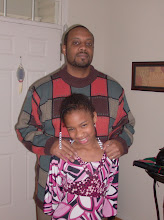
Five Steps to Lifelong JoyFortunately, it’s easier than you might think to begin instilling the inner qualities that lead to a lifetime of happiness. With patience and an open mind, the following five steps can help you lay the groundwork for your child:
Connect with others. More than any other single factor we can control, connection is the key to a happy childhood, and adulthood. Connection, in the form of unconditional love from an adult, helps foster self-confidence. Try to create an atmosphere at home in which your child feels cared for, welcomed, and treated fairly. Without that feeling, kids shy away from new things and experiences.
Foster a can-do attitude. This is one of the most reliable defenses against depression and despair at any age. Children watch and learn from how you deal with disappointment, be it in your career or at an athletic event or even just in being cut off in traffic. You can encourage competition, making sure that your child experiences both victory and defeat, and help her deal with each. You can use humor to deal with the pain, or bits of philosophy, or simply let your children see that you never give up.
Pretend and play. Unstructured play hones children’s imagination, teaches critical problem-solving skills, and trains them to tolerate frustration. It also helps children learn that doing things again and again leads to improvement. In fact, play is the most important “work” your child can do. Practice, as part of structured activity, trains children how to receive help and get the most from other adults, such as good teachers and coaches.
Create opportunities for mastery. With mastery comes confidence, leadership skills, initiative, and an enduring desire for hard work. It transforms a child (or an adult) from a reluctant, fearful learner into a motivated player. One of the great goals of parents, teachers, and coaches should be to find areas in which a child might experience mastery, then, make it possible for the child to feel this potent sensation. Once there, children want to go there again and again.
Provide recognition. The feeling of being valued by others (friends, family, community) is key. You can exert a tremendous positive influence through the recognition you offer. We adults too quickly forget how much it meant to us when we were young — it meant the world to us, and to children today it still does. Recognition in turn reinforces the sense of connection that all children need.






No comments:
Post a Comment